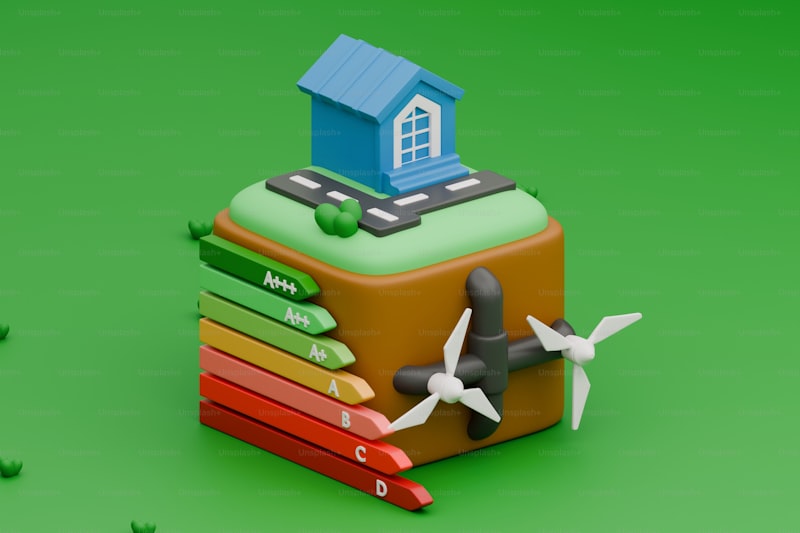Gone are the days of flipping through thick property catalogs or driving around neighborhoods for hours. Today, with just a few clicks, you can explore multiple listings through immersive virtual tours that make you feel like you’re walking through the property yourself. These virtual tours not only save time but also provide a more realistic preview, helping buyers narrow down their choices without leaving their couch.
But it’s not just the buying process that’s benefiting from technology. Sellers are also reaping the rewards. High-resolution photography and drone footage capture homes in their best light, attracting more potential buyers online. Social media platforms and real estate websites further amplify the reach of these listings, ensuring that properties get maximum exposure to the right audience.
Behind the scenes, artificial intelligence is playing a crucial role in predicting market trends and pricing properties accurately. AI algorithms analyze vast amounts of data, from local market statistics to economic indicators, to provide insights that help buyers and sellers make informed decisions. This predictive analytics not only speeds up the transaction process but also minimizes risks, ensuring that both parties get the best deal possible.
Moreover, technology is transforming the way homes are designed and built. 3D printing, for instance, allows for the construction of customizable homes at a fraction of traditional costs and timelines. Smart home technology integrates IoT (Internet of Things) devices to enhance convenience and security, allowing homeowners to control everything from lighting to temperature with their smartphones.
Virtual Reality Tours: Redefining Property Viewings in the Digital Age
Imagine stepping into your dream home without leaving your couch. Thanks to Virtual Reality (VR) tours, this futuristic technology is now transforming how we explore properties in the digital age. Gone are the days of static images and flat floor plans; VR tours plunge you into a fully immersive experience that feels astonishingly real.
So, what exactly are VR tours? They’re like magic portals that teleport you inside a property. Using a VR headset or even just your smartphone, you can navigate through every room, zoom in on details, and get a true sense of the space—all from the comfort of wherever you are. It’s house hunting reimagined, offering a level of detail and interactivity that traditional photos simply can’t match.
Imagine being able to stroll through the living room, peek into the kitchen, and wander down the hallways as if you were physically there. With VR tours, you can do just that. Whether you’re a prospective buyer or a curious renter, this technology puts you in control of the viewing experience. Want to see the view from the bedroom window? No problem. Curious about closet space? Take a virtual walk-in. It’s like having the keys to every door before you even set foot on the property.
But VR tours aren’t just about convenience; they’re about making informed decisions. By experiencing a property in VR, you can better gauge its layout, flow, and overall feel. This level of immersion reduces surprises and helps you narrow down your choices more efficiently. Plus, it saves time for both buyers and sellers—a win-win in today’s fast-paced world.
In essence, VR tours are reshaping the real estate landscape. They offer a glimpse into the future of property viewings, where boundaries blur between physical and digital realms. It’s not just about seeing a property; it’s about experiencing it firsthand, making informed decisions, and embracing the possibilities of technology to simplify and enhance our lives.
Blockchain in Real Estate: Transforming Transactions and Security
So, what exactly is blockchain? In essence, it’s a decentralized digital ledger that records transactions across multiple computers in such a way that the registered transactions cannot be altered retroactively. Think of it as a digital record book that is transparent, secure, and immutable. This technology has the potential to streamline processes and reduce fraud in real estate transactions.
One of the most significant advantages of blockchain in real estate is transparency. Every transaction is recorded on the blockchain, creating a permanent and transparent chain of ownership. This eliminates the need for intermediaries such as brokers and lawyers, reducing costs and speeding up the transaction process. Imagine being able to verify ownership history and property details with just a few clicks, all while ensuring data integrity and security.
Security is another critical aspect where blockchain shines. Traditional real estate transactions often involve multiple intermediaries and paper-based documentation, leaving them vulnerable to fraud and errors. With blockchain, each transaction is encrypted and linked to the previous one, making it nearly impossible to alter without consensus from the network. This level of security not only protects sensitive information but also builds trust among all parties involved.
Moreover, blockchain can facilitate fractional ownership and streamline property management through smart contracts. These self-executing contracts automatically verify, execute, and enforce the terms of agreements, reducing the need for manual oversight and potentially saving stakeholders time and money.
Blockchain technology holds immense promise for transforming the real estate industry. By enhancing transparency, security, and efficiency in transactions, it has the potential to simplify processes that have traditionally been complex and time-consuming. As blockchain continues to evolve, its impact on real estate is likely to grow, paving the way for a more secure, efficient, and accessible property market.
Artificial Intelligence Predictions: How AI is Reshaping Property Investment
In the realm of property investment, knowledge is power. AI harnesses vast amounts of data—historic property prices, economic indicators, population trends, and even sentiment analysis from social media—to forecast market movements. It’s like having a team of expert analysts working around the clock, sifting through data points and identifying patterns that human eyes might miss.
One of the most impressive feats of AI in property investment is its ability to predict property value fluctuations. By analyzing historical data and current market conditions, AI models can forecast which areas are likely to see growth and which might face stagnation. This predictive capability empowers investors to make informed decisions, maximizing returns and minimizing risks.
Moreover, AI is democratizing access to real estate investment opportunities. Platforms powered by AI algorithms can suggest personalized investment options based on an individual’s financial goals, risk tolerance, and investment horizon. This means that whether you’re a seasoned investor or a novice, AI can help you navigate the complex world of property investment with confidence.
Another area where AI shines is in property management. From tenant screening using predictive analytics to optimizing rental pricing based on market demand, AI is streamlining operations and maximizing efficiency for property owners and managers alike. This not only improves profitability but also enhances tenant satisfaction by addressing issues proactively.
As AI continues to evolve, so too will its impact on property investment. The future promises even more sophisticated algorithms capable of understanding and adapting to dynamic market conditions in real-time. For investors, staying ahead means embracing these technological advancements and leveraging them to gain a competitive edge in an increasingly digital and data-driven industry.
Smart Home Integration: The Future of Convenience in Real Estate
Smart home technology has revolutionized the way we interact with our living spaces. From controlling appliances remotely via smartphone apps to using voice assistants like Alexa or Google Home to manage everyday tasks, the possibilities are endless. This seamless integration of devices and systems not only enhances convenience but also improves efficiency and security.
In today’s fast-paced world, homeowners and tenants alike are increasingly seeking properties that offer smart home features. These technologies not only make life easier but also add value to real estate investments. Imagine being able to monitor your home’s security cameras from your office or adjusting your thermostat while stuck in traffic—smart home integration brings this convenience right to your fingertips.
Moreover, smart homes are not just about gadgets; they represent a lifestyle upgrade. They can help save energy by optimizing usage patterns and reducing utility bills. For example, smart thermostats can learn your heating and cooling preferences and adjust accordingly, maximizing comfort while minimizing energy wastage.
The appeal of smart home integration extends beyond practicality—it’s about creating a living environment that adapts to your needs effortlessly. Whether you’re a tech enthusiast or simply someone who values convenience, integrating smart technology into your home can transform your daily routine.

As the real estate market evolves, properties equipped with smart home features are becoming increasingly desirable. They not only attract buyers and renters but also command higher prices. For real estate developers and investors, incorporating these technologies into new builds or renovations can significantly increase property value and appeal.
Big Data Analytics: Unveiling Trends and Patterns in Property Markets
In today’s dynamic real estate landscape, understanding trends and patterns is crucial for making informed decisions. Enter big data analytics, a game-changer that’s revolutionizing how we interpret market behaviors and predict future outcomes in property markets.
Imagine having the power to sift through vast amounts of data – from transaction histories and economic indicators to social trends and consumer behavior – all to uncover hidden insights. This is exactly what big data analytics enables us to do. It acts as a magnifying glass, revealing intricate details and correlations that traditional methods might overlook.
One of the most fascinating aspects of big data analytics in property markets is its ability to detect trends before they become mainstream knowledge. By analyzing historical sales data alongside demographic shifts and urban development plans, analysts can identify emerging hotspots and potential investment opportunities well in advance.

Moreover, big data doesn’t just stop at predicting trends; it also helps in understanding buyer preferences and market sentiment. For instance, analyzing online search patterns and social media interactions can provide real-time feedback on what features potential buyers prioritize in a home or commercial property.
Think of it as a crystal ball that not only forecasts market movements but also guides strategic decisions. Whether you’re a developer looking to pinpoint the next growth area or a buyer seeking the best value for money, leveraging big data analytics gives you a competitive edge.
Big data analytics isn’t just a buzzword; it’s a transformative tool reshaping how we perceive and navigate property markets. By harnessing its capabilities to unveil trends and patterns, stakeholders can make smarter, more informed decisions that drive success in an ever-evolving industry.
Frequently Asked Questions
How is artificial intelligence impacting real estate transactions
Discover how artificial intelligence is revolutionizing real estate transactions, from predictive analytics guiding investment decisions to virtual tours enhancing property viewing experiences.
Can blockchain improve property transactions and ownership records
Learn how blockchain enhances property transactions and ownership records, ensuring secure, transparent, and immutable digital records that streamline processes, reduce fraud, and enhance trust between parties.
What role does virtual reality play in real estate marketing and sales
Virtual reality enhances real estate marketing and sales by allowing potential buyers to explore properties remotely in immersive 3D environments. It provides a realistic sense of space and layout, saving time for both agents and clients while increasing engagement and reducing the need for physical visits.
What are the key technologies transforming the real estate industry today
Explore the transformative technologies shaping the real estate industry today, from AI-driven analytics enhancing property valuation accuracy to blockchain streamlining transactions. Discover how IoT is revolutionizing building management and how virtual reality is reshaping property tours, offering immersive experiences.
How are data analytics changing the way we understand real estate markets
Discover how data analytics revolutionize real estate market insights, offering precise trends and forecasts based on comprehensive data, empowering smarter investment decisions and strategic planning.


